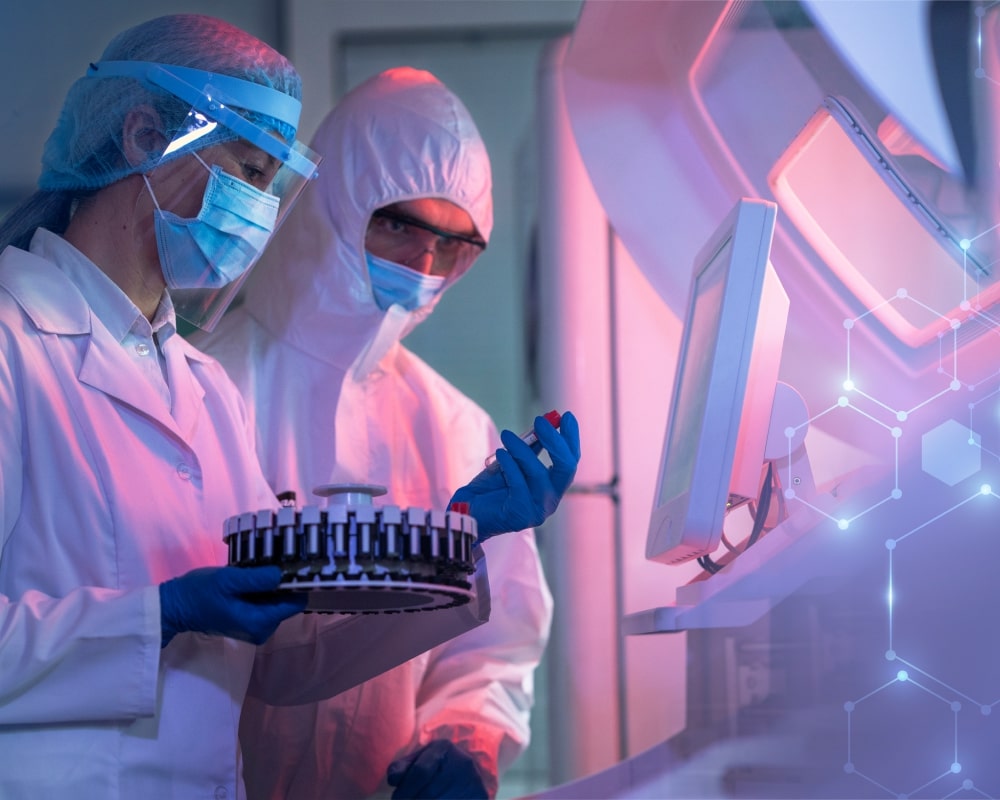April 4, 2023 By: Rana Banerjee
Artificial Intelligence (AI) and automation are revolutionizing healthcare. From streamlining patient care to improving medical research and drug discovery, AI and automation have already made significant contributions to the healthcare industry. The market for artificial intelligence in healthcare, which Grand View Research in 2022 estimated to be valued at USD 15.4 billion is expected to grow at a CAGR of 37.5% from 2023 to 2030.
Let’s take a closer look at the future of AI and automation in healthcare, drawing insights from the latest research and analysis.
Streamlining Patient Care
One of the most significant contributions of AI and automation in healthcare has been in streamlining patient care. AI-powered algorithms are being used to analyze patient data, such as electronic health records, lab results, and imaging scans, to provide doctors with more accurate diagnoses and treatment recommendations. This has the potential to drastically enhance patient outcomes and lower medical errors.
Personalized Treatments
AI can be used to personalize treatments based on individual patient characteristics, such as genetics and lifestyle factors. By analyzing patient data and medical histories, AI can help doctors make more informed decisions about the best course of treatment for each patient. As a result, therapies may be more successful, side effects will reduce, and patient satisfaction will increase.
Improved Medical Research
AI and automation are also transforming medical research. Massive amounts of medical data can be analyzed by AI-powered systems to find patterns and connections that may not be obvious to human researchers. This can lead to new discoveries and insights, which can then be used to develop new treatments and therapies.
For instance, the study and treatment of cancer are being advanced by AI. One of the most prevalent cancers in women, breast cancer, is being addressed by the Biden Cancer Moonshot program by using technology. By investing in research and technology, the initiative aims to develop new treatments and improve outcomes for breast cancer patients.
Drug Discovery
Traditionally, drug discovery has been a slow and expensive process that involves a lot of trial and error. However, to find prospective drug candidates and forecast their efficacy, AI-powered systems can evaluate enormous amounts of data.
Moreover, AI and machine learning algorithms can be used to analyze the structure of proteins and other molecules to develop new drugs that are more effective and have fewer side effects. This has the potential to revolutionize the pharmaceutical industry and lead to the development of more effective and targeted therapies.
Reducing Provider Burnout
Another way that technology is improving healthcare outcomes is by reducing provider burnout. Automating administrative activities with the aid of AI would free up healthcare personnel to concentrate on patient care. This not only reduces burnout but also enables providers to work at the top of their abilities and deliver the best possible care to patients. AI-powered chatbots are being used to assist patients with their queries and provide them with timely responses. This can help reduce healthcare providers’ workload and provide patients with more immediate assistance.
Biomedical Large Language Models
In order to respond to complex healthcare challenges, Artificial Intelligence systems known as Biomedical Large Language Models (BLLMs) are trained on a vast amount of Biomedical data. Biomedical Large Language Models have the potential to revolutionize healthcare for payers and providers in a number of aspects, including clinical decision support, prior authorization, fraud detection, population health management, and patient engagement. Biomedical Large Language Models can change and benefit healthcare payers and providers by raising standards of care, cutting costs, and enhancing patient outcomes.
Conclusion
The future of healthcare is being revolutionized by the rapid advancements in AI and automation. Personalized treatments, improved medical research, and drug discovery are just a few examples of how AI is changing healthcare for the better. With continued investment and development, the potential for AI and automation in healthcare is limitless. As technology continues to evolve, we can expect to see even more ground-breaking advancements in healthcare that will enhance patient outcomes, reduce costs, and improve overall healthcare delivery.
JK Tech is a next-generation technology solutions consultant that is committed to transforming the Healthcare and Life Sciences industries through the power of Data, Analytics, and Automation. With a focus on insight-driven healthcare, we offer a comprehensive suite of solutions that address key challenges faced by Healthcare providers and Life Sciences companies. These solutions include Revenue Cycle Management, Automated Compliance, Population Health, and Digital Labs. JK Tech’s healthcare and life sciences solutions enable organizations to achieve better patient outcomes, increase operational efficiency, and drive growth.



